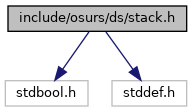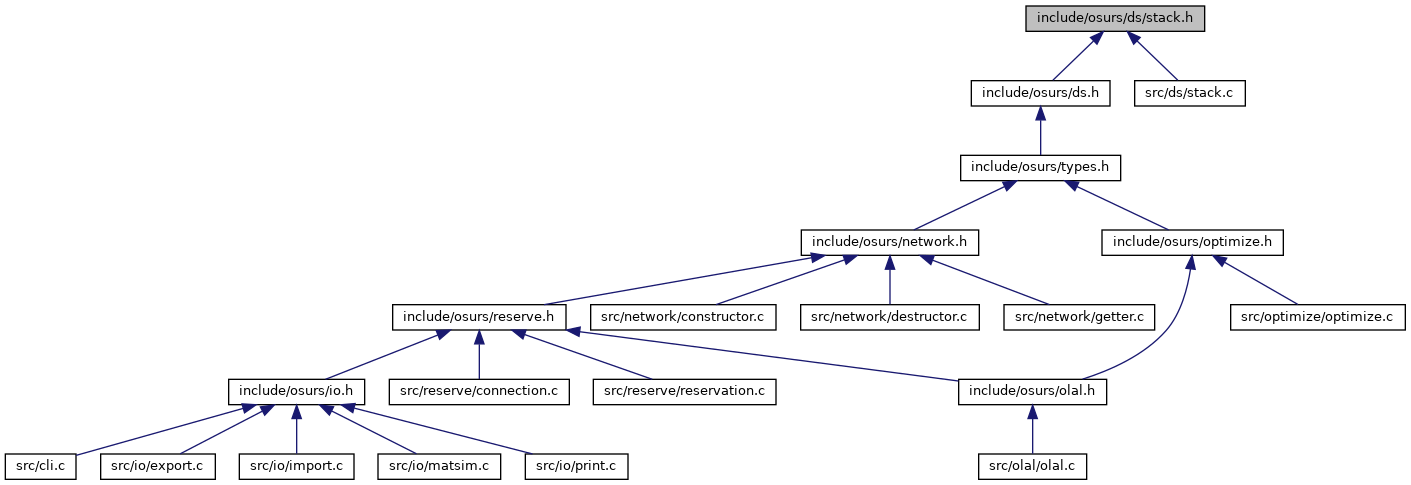#include <stdbool.h>#include <stddef.h>
Include dependency graph for stack.h:

This graph shows which files directly or indirectly include this file:

Go to the source code of this file.
Data Structures | |
| struct | StackNode |
| Stack node. More... | |
| struct | Stack |
| Stack. More... | |
Typedefs | |
| typedef struct StackNode | StackNode |
| Stack node. More... | |
| typedef struct Stack | Stack |
| Stack. More... | |
Functions | |
| void | stack_init (Stack *stack) |
| Initialize a Stack structure. More... | |
| Stack * | stack_create () |
| Create a new Stack structure. More... | |
| bool | stack_is_empty (Stack *stack) |
| Check if a Stack is empty. More... | |
| void | stack_push (Stack *stack, void *data) |
| Push an element onto a Stack. More... | |
| void * | stack_pop (Stack *stack) |
| Pop the top element from a Stack. More... | |
| void * | stack_peek (Stack *stack) |
| Return the top element of a Stack. More... | |
| void | stack_clear (Stack *stack) |
| Clear all elements from a Stack. More... | |
| void | stack_free (Stack *stack) |
| Free a Stack structure. More... | |
Detailed Description
Stack data structure.
This file defines a Stack data structure, which is an abstract data type (ADT) that implements a LIFO (last-in, first-out) stack. Elements can be inserted at the top and removed from the top.
- Date
- 2022-12-21
Typedef Documentation
◆ Stack
◆ StackNode
Function Documentation
◆ stack_clear()
| void stack_clear | ( | Stack * | stack | ) |
◆ stack_create()
| Stack* stack_create | ( | ) |
◆ stack_free()
| void stack_free | ( | Stack * | stack | ) |
◆ stack_init()
| void stack_init | ( | Stack * | stack | ) |
◆ stack_is_empty()
| bool stack_is_empty | ( | Stack * | stack | ) |
◆ stack_peek()
| void* stack_peek | ( | Stack * | stack | ) |
Return the top element of a Stack.
This function returns a pointer to the element at the top of a Stack, without removing it from the stack. If the stack is empty, the function returns NULL.
- Parameters
-
stack The Stack from which the top element will be returned.
- Returns
- The element at the top of the stack, or NULL if the stack is empty.
◆ stack_pop()
| void* stack_pop | ( | Stack * | stack | ) |
Pop the top element from a Stack.
This function removes the element at the top of a Stack and returns a pointer to it. If the stack is empty, the function returns NULL.
- Parameters
-
stack The Stack from which the element will be removed.
- Returns
- The element at the top of the stack, or NULL if the stack is empty.